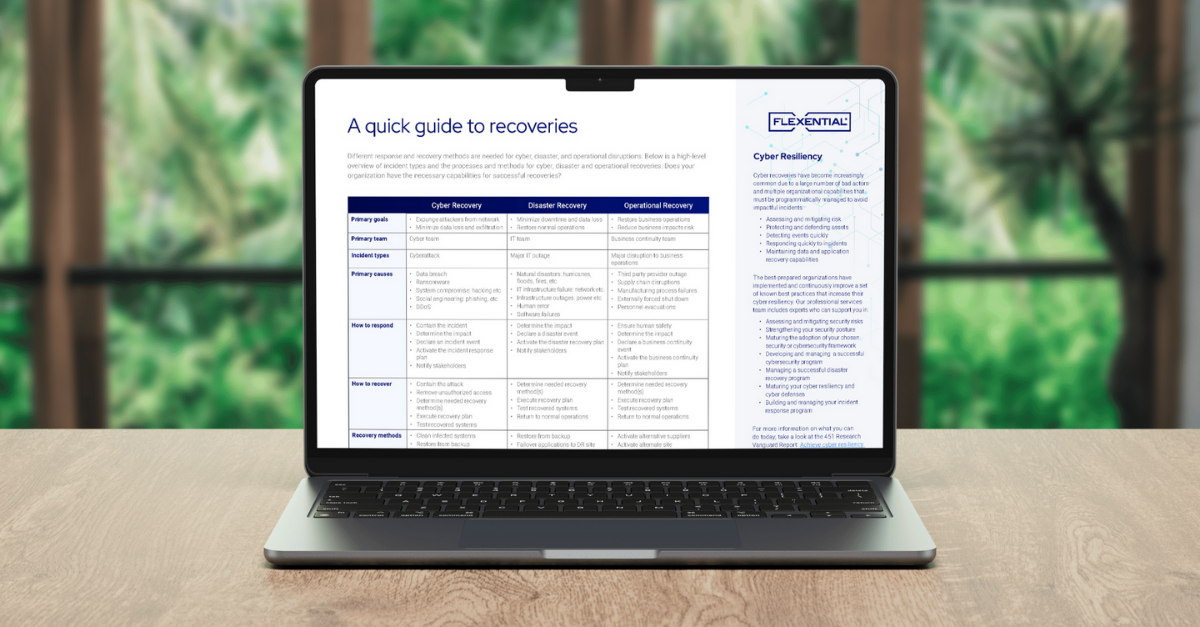Security strategies for protecting your business
IT leaders know the importance of having security in place to ensure valuable data and information remains protected. But putting the right security solution in place is easier said than done. And just when you put a solution in place, the threat landscape changes, regulations change, or your organization’s needs change.

Despite widespread awareness, many organizations still grapple with implementing effective security protocols, leading to vulnerabilities and breaches. As we navigate these challenges, it's crucial to adapt and strengthen our security practices continuously.
Adapting to an evolving landscape
Security solutions must evolve to counteract the ever-changing threat landscape. This involves not just deploying the latest tools but also understanding the unique security requirements of your organization. Whether it's compliance with strict regulations like HIPAA and PCI or proactive measures against potential breaches, the approach must be tailored.
Today's reality is not about if your organization will face attacks but how you will respond and recover. Being prepared for an attack involves more than just defense; it requires comprehensive readiness for a resilient response.
Key security best practices for modern enterprises
Minimize data exposure
One of the simplest yet most effective strategies to reduce security risks is minimizing the amount of sensitive data stored and handled. Whenever possible, eliminate unnecessary data, especially from legacy systems. Utilize network monitoring tools to identify data that can be safely removed, keeping retention requirements and regulations in mind.
Build a dedicated security team
Even with advanced network monitoring tools, the volume of security logs can be overwhelming. A dedicated internal security team focused on monitoring and protecting your network is invaluable. This team plays a crucial role in detecting and responding to potential threats and safeguarding your organization's critical data.
Leverage professional security services
Small IT teams may benefit from augmenting their capabilities with professional security services. Whether it's for ongoing support or specific incidents, partnering with experts can provide the specialized attention needed to manage security risks effectively. Consider retaining an incident response and forensics team to ensure rapid recovery in the event of a breach.
Choose a secure managed hosting provider
Partnering with a secure managed hosting provider allows businesses to focus on growth without the burden of managing IT infrastructure. When selecting a provider, inquire about their security posture and the controls they offer to protect your environment. A provider should also be transparent about audit reports and management options for their services.
Employ hybrid security strategies
Hybrid security strategies offer the best of both worlds, combining security, safety, and compliance solutions for optimal flexibility. By leveraging cloud services and hybrid cloud models, you can adjust your infrastructure as needed, ensuring your business remains secure and compliant across various environments.
Conclusion: Prioritizing security in a digital age
Choosing the right security approach involves balancing what your business can afford against what you cannot afford to lose. In an era where digital threats are constantly evolving, staying informed and agile is key to protecting your organization. Implement these modern best practices to enhance your security posture and ensure your business remains resilient in the face of emerging threats.
Learn how to transform your data protection approach and avoid potential disasters in our webinar, “Mastering data protection: Insights for implementing the right data protection strategy for your workloads.” Register or watch on-demand.






